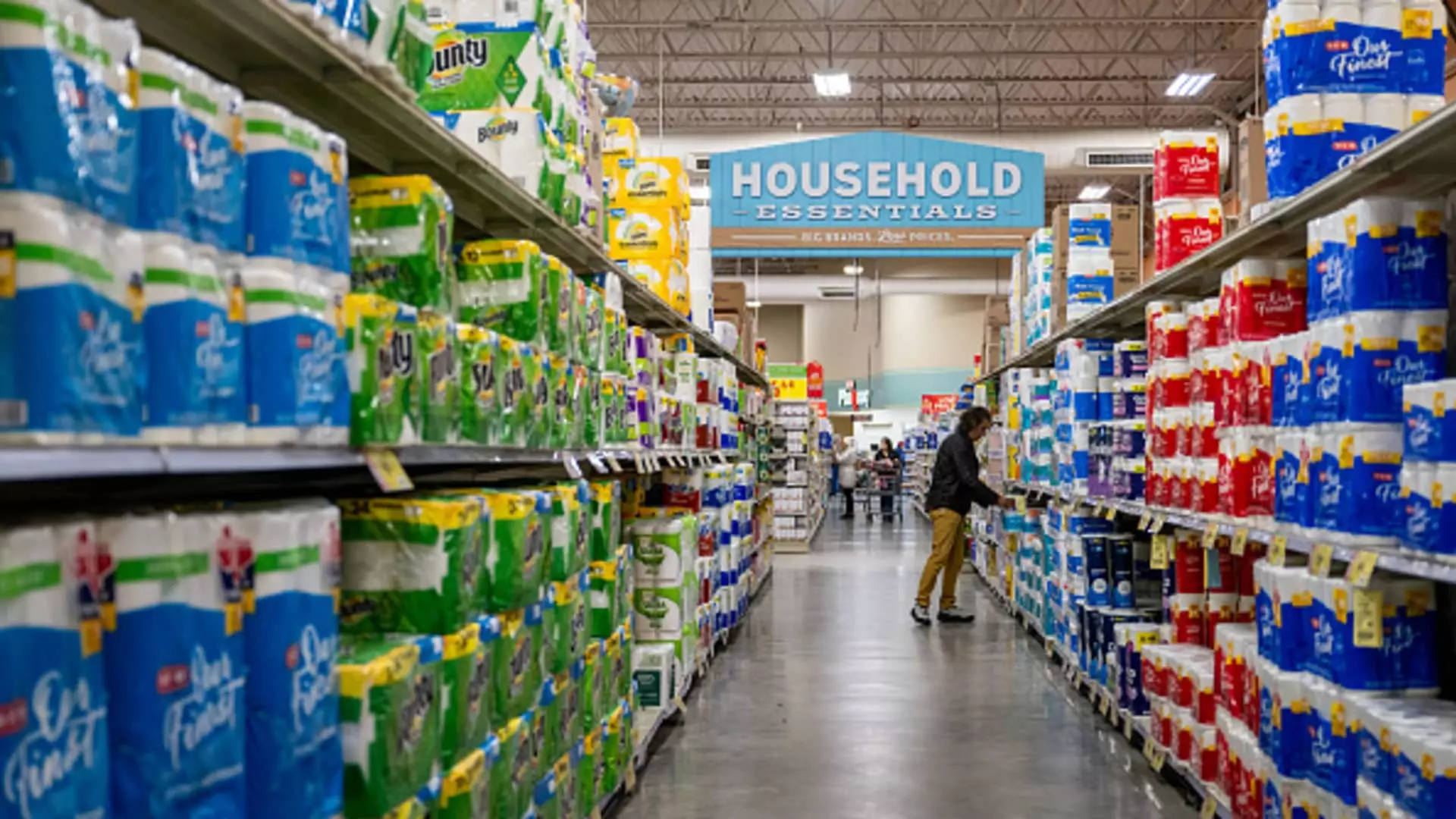The recent implementation of tariffs by the Trump administration is the beginning of a troubling chapter in U.S. economic policy that threatens to further burden everyday American consumers. While the intention behind these tariffs may be to revive manufacturing and bolster domestic jobs, the immediate reality is that everyday goods, from coffee to toilet paper, are poised to become significantly more expensive. This is not mere economic theory; it is a tangible consequence of policies that fail to account for the complexities of global supply chains.
The Consumer Brands Association has highlighted a crucial paradox: many critical ingredients essential for food and household products simply cannot be sourced domestically due to climatic limitations. For instance, while the U.S. might aspire to produce its own staples, the climatic reality renders it incapable of growing items like cocoa, bananas, and vanilla—key components in a myriad of popular products. The tariffs, therefore, not only exacerbate costs but threaten the very access consumers have to these basic staples. In an attempt to make America great again, the administration risks undermining the very foundation of American consumption.
The Consumer’s Dilemma
Imagine walking into a grocery store and being hit with sky-high prices on familiar brands and staples. According to recent analyses, the increase in tariffs will lead to a spike in consumer prices for an array of products—coffee, bananas, and even toilet paper. Already, the U.S. imports approximately 40% of its bananas from Guatemala, which will now be subjected to a steep 10% tariff. Consumers may wonder—how does this impact their pocketbooks?
The reality is stark; consumers will be caught in the crosshairs of a trade war that prioritizes political posturing over their needs. Take vanilla, for instance—a mere indulgence for some but a vital ingredient for many bakers. With Madagascar supplying the bulk of U.S. vanilla imports, a staggering 47% tariff threatens to transform joyous culinary endeavors into economically unbearable luxuries. The gut-wrenching irony is that while the intent may be patriotic, the outcome feels decidedly un-American.
A Ripple Effect on Daily Life
The ramifications of these tariffs go far beyond the grocery aisle. Household staples such as diapers, lotions, and shampoo will likely see price increases, too, as manufacturers grapple with rising costs for essential inputs derived from global sources. The reality is that in our interconnected market economy, no product is an island. Raw materials—such as wood pulp and palm oil, which are critical for daily household goods—are often sourced from foreign countries. Tariffs on imported items only serve to inflate their prices as the costs trickle down to consumers.
This pushes everyday Americans into a tight corner: forced to pay more for items that should be routine, families will face difficult decisions on how to allocate their budgets. Will they cut back on high-quality goods for the sake of affordability? The situation paints a dismal picture of diminishing purchasing power, all thanks to political maneuverings that disregard the interconnectedness of modern economies.
Investment Thwarted Amidst Uncertainty
Investors are not oblivious to this precarious situation. Following the tariff announcements, financial markets fluctuated, fueled by panic and unpredictability. However, amid this chaos, the consumer staples sector has emerged relatively unscathed, as people inevitably return to their basic needs, even if those needs come with higher price tags. Stocks in companies like Procter & Gamble and Coca-Cola saw modest gains, signaling a shift towards “safer” investments in times of economic instability.
Yet this begs the question: Why invest heavily in a sector that thrives off of inflated prices? The notion of investing in stability becomes a misnomer in an age where stability is predicated upon higher costs for essential goods. For American workers and consumers alike, this creates a paradox—an economy that appears robust on paper while eroding the very fabric of daily life.
As the tariffs take effect, the grand vision of economic revival risks being overshadowed by a sobering reality. The road to an imagined economic independence may lead, instead, to a nationwide struggle marked by frustration and inflated costs, ultimately questioning the wisdom behind such an approach to trade policy. The intersection of politics and consumers’ wallets is fraught with peril, and as the smoke clears, it becomes evident that the price of “America First” may simply be too high for everyday Americans to bear.


Leave a Reply